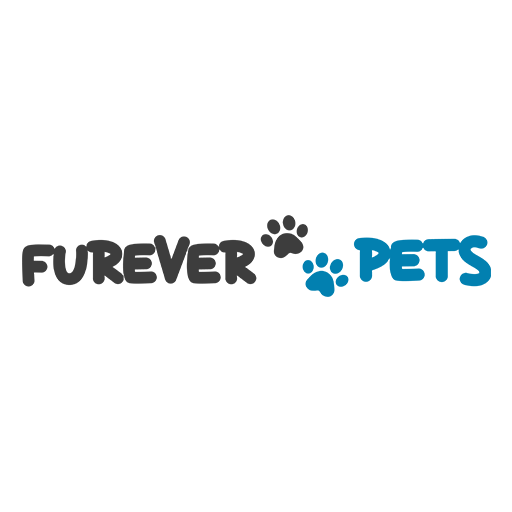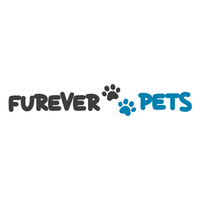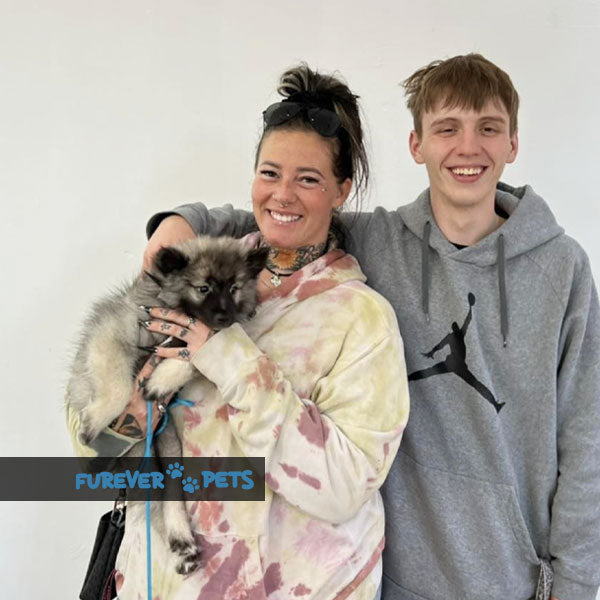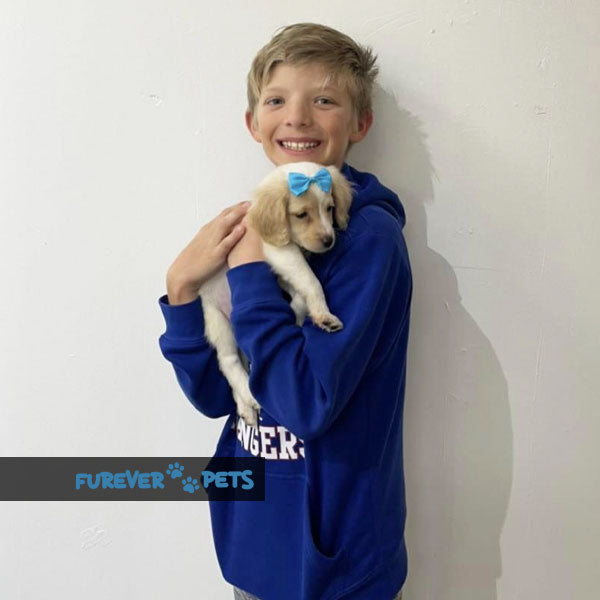
Puggle 9079 Boy
Puggles are a cross breed of the Pug and Beagle. They have the wrinkles of their Pug parents and the longer muzzle, ears, and tail of a Beagle — a look that draws comparisons to miniature Mastiffs. This unique appearance and his friendly nature has driven a rapid rise in popularity since the first Puggle was bred in the 1990s.
Cross breeds such as the Puggle are often referred to as designer dogs rather than mixed breeds because they're bred on purpose and are a combination of two known breeds. People who raise them hope to end up with the best of both worlds: for instance, the Pug's laidback personality and the Beagle's longer nose, which makes breathing easier. Sometimes that happens and sometimes it doesn't; it all depends on the shuffle of the genetic cards.
Puggles are active. Not content to laze around the house, they play energetically indoors and out, racing around the dining room table and down the hall. Some enjoy digging outdoors. Expect to give them at least 30 minutes of exercise per day. Puggles are good walking companions, but they're not the best choice if you want a jogging partner. Agility training is a good way to direct your fun-loving Puggle's
need for speed.
Puggles are smart, but they may or may not be eager to please. Neither the Pug nor the Beagle is especially known for ease of training, and both breeds can be stubborn. Use positive reinforcement techniques such as food rewards, play, and praise, and keep training sessions short and sweet.
Being a social dog, the Puggle gets along well with everyone. He usually enjoys the company of children and isn't known for aggression toward other dogs. Puggles will bark to let you know when someone comes to the door, but given their friendly nature, they're not guard dogs. Some are howlers, a trait inherited from their Beagle parent.
Cross breeds such as the Puggle are often referred to as designer dogs rather than mixed breeds because they're bred on purpose and are a combination of two known breeds. People who raise them hope to end up with the best of both worlds: for instance, the Pug's laidback personality and the Beagle's longer nose, which makes breathing easier. Sometimes that happens and sometimes it doesn't; it all depends on the shuffle of the genetic cards.
Puggles are active. Not content to laze around the house, they play energetically indoors and out, racing around the dining room table and down the hall. Some enjoy digging outdoors. Expect to give them at least 30 minutes of exercise per day. Puggles are good walking companions, but they're not the best choice if you want a jogging partner. Agility training is a good way to direct your fun-loving Puggle's
need for speed.
Puggles are smart, but they may or may not be eager to please. Neither the Pug nor the Beagle is especially known for ease of training, and both breeds can be stubborn. Use positive reinforcement techniques such as food rewards, play, and praise, and keep training sessions short and sweet.
Being a social dog, the Puggle gets along well with everyone. He usually enjoys the company of children and isn't known for aggression toward other dogs. Puggles will bark to let you know when someone comes to the door, but given their friendly nature, they're not guard dogs. Some are howlers, a trait inherited from their Beagle parent.







